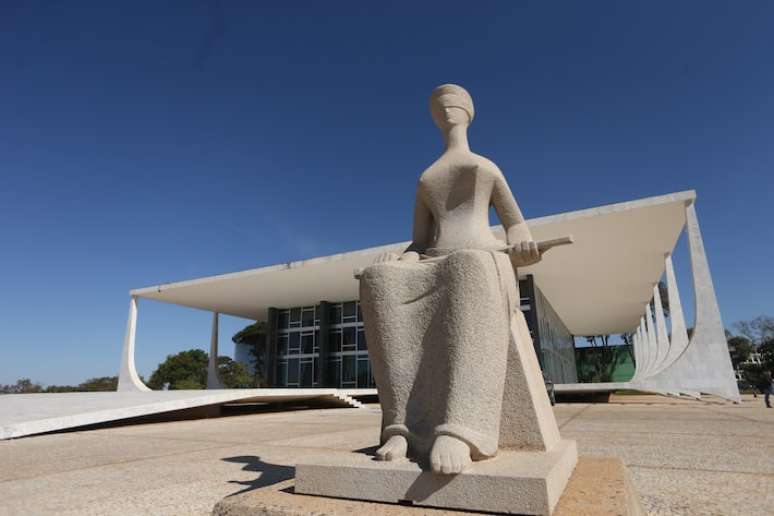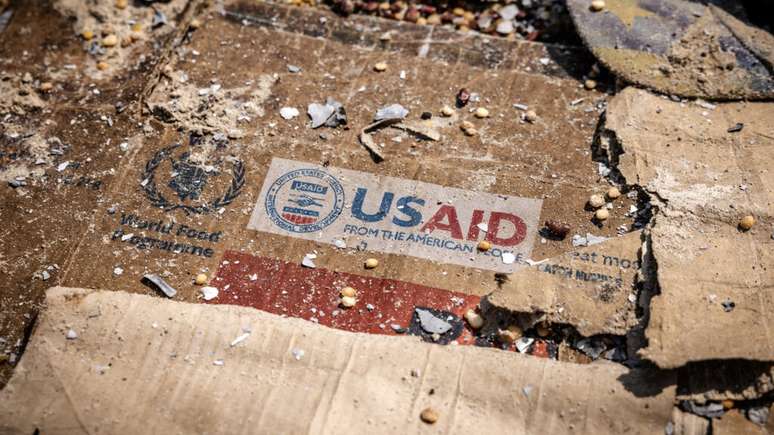In 1938 a series of pogroms in Germany and Austria worsened the situation of the Jews. Despite reports from foreign diplomats in several cities, the world witnessed, without reacting, beatings, fires and murders: “I remember the morning of November 10 very well,” says W. Michael Blumenthal. “My father was arrested very early and, amid my mother’s agitation, I managed to escape into the street. I saw the shattered shop windows on Kurfürstendamm and the synagogue on Fasanenstrasse, where smoke was coming out, but no there was no fire left.”
At the time, Blumenthal, an American born in Berlin, had just turned 12.
Humiliation on the street
On the night of November 9-10, 1938 – in the episode of the November Pogrons, which became known as “The Night of Broken Glass” – cruel popular uprisings against Jews took place throughout Germany and Austria. Thousands of synagogues and houses of prayer were looted, destroyed and burned.
On the streets people were humiliated, beaten and in some cases even killed just because they were of Jewish origin. The police simply watched. The firefighters did not intervene in the fires in the synagogues and Jewish shops, but only in the surrounding houses.
And the pogroms were only the beginning of a policy of extermination. Already on November 10, 30 thousand Jews were deported to the concentration camps of Dachau, Sachsenhausen and Buchenwald, including Blumenthal’s father.
“I still remember my mother’s words when he was taken away by two police officers: ‘What is happening? What are you going to do to him? What has he done?’. Even though I am a child, I feel the fear of adults, in this case my mother’s.”
Pretext for persecution
Since the Nazis took power in 1933, physical attacks and anti-Semitic intimidation were part of grim daily life in Germany. Two years later, the Nuremberg Laws “for the protection of German blood and honor” defined who was Jewish; many of them had already been eliminated from the profession. Other laws limited their access to public spaces. In many cases, Jewish property had been expropriated, or “Aryanized,” as the regime would put it.
However, “it is important to consider November 1938 as a turning point in history,” explains historiographer Raphael Gross. “After 1938 what is called the era of the German Jews ended. German society became different.”
A convenient pretext for the November Pogrons was the murder of the German diplomat Ernst vom Rath by Herschel Grynszpan, a 17-year-old Jew, on November 7 in Paris. As soon as the radio announced the event, anti-Semitic riots began in some German cities. However, the nationwide pogrom broke out just two days later, after Adolf Hitler himself gave the order to do so.
From Munich, where the entire Nazi leadership had gathered to commemorate the anniversary of Hitler’s coup, Propaganda Minister Joseph Goebbels finally delivered a speech explicitly ordering the destruction of Jewish shops and the burning of their synagogues . The police should not have intervened, the firefighters only had to protect the “Aryan” property. Looting was prohibited.
The incitement was put into practice that same night in Berlin, Cologne, Hamburg, Frankfurt, in small towns, in villages and finally throughout Germany. “For every reason imaginable, the Germans participated or omitted,” Blumenthal recalls.
That doesn’t mean he liked what was happening, he adds, “but no one said anything.” “November 1938 took place in front of everyone’s eyes, in front of the international press, in front of diplomatic representations, in front of all citizens”, underlines the historian Gross.
Horrified diplomats
All foreign diplomats based in Germany have informed their home countries of the situation. Hermann Simon collected the testimonies of ambassadors and consuls active in the country in 1938, from Hamburg to Innsbruck, from Cologne to Breslau (now Breslau, Poland).
“The reports are full of disgust and include terms like ‘cultural barbarism,'” Simon says. Despite the official ban, looting occurred on November 9 and 10: “Groups of young people could be seen in the streets displaying cult objects stolen from Israeli places of prayer,” Brazil’s diplomatic advisor recorded, for example.
The Polish consul general in Leipzig recounts the drama of a Polish Jewish family. “Sperling’s wife was stripped naked and the thugs tried to rape her.” The Latvian ambassador describes how Berlin’s Kurfürstendamm boulevard “looked like a battlefield”. The Finnish representative speaks of “annihilating criticism” from the German population. A very frequent comment was “As a German I am ashamed”, he reports.
The world did not react
However, the diplomats sent neither concrete requests nor suggestions for measures to their countries. “There is the expectation and the deceptive hope that somehow we can get along with the regime”, comments Hermann Simon. Overall, reaction to the news is relatively muted.
Raphael Gross adds that, after November 1938, the international humanitarian action Kindertransport began, also called the Refugee Children’s Movement: the emigration of Jewish minors to England, with the aim of saving them from Nazi persecution. “Some states reacted, yes, but very little.”
At that time it was not yet possible to predict that the Nazis would come up with a plan to murder all the world’s Jews. Thus wrote the Italian diplomatic advisor on 11 November 1938: “It is unimaginable that one day 500,000 people will all be put in front of a wall, or condemned to suicide, or that they will be locked up in a gigantic concentration camp.”
A fatal error of judgment: still in 1938, Blumenthal’s family managed to escape by ship, from Italy to Shanghai, in a journey that lasted a month. At that point, this was the only place in the world where visa-free refugees could still land.
Source: Terra
Rose James is a Gossipify movie and series reviewer known for her in-depth analysis and unique perspective on the latest releases. With a background in film studies, she provides engaging and informative reviews, and keeps readers up to date with industry trends and emerging talents.



![Everything for pre -light: what you expect to do, on Thursday of July 17, 2025 in 24 episodes [SPOILERS] Everything for pre -light: what you expect to do, on Thursday of July 17, 2025 in 24 episodes [SPOILERS]](https://fr.web.img6.acsta.net/img/3b/de/3bde5ba8b36b23f57626d84df3987459.jpg)


